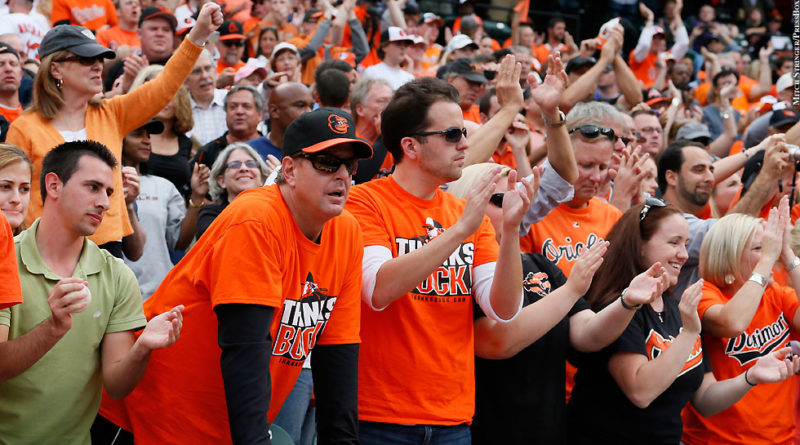I was in school when the Orioles played the Cleveland Indians to christen Oriole Park at Camden Yards April 6, 1992. My first opportunity to see the majestic new ballpark didn’t come until later that year, when my father surprised me with a pair of tickets.
This was the summer of the Olympic basketball “Dream Team.” I was so swept up in national pride that it would have made the hosts at Fox News blush. I made sure to memorize every word of the national anthem, even if I never really quite understood what a rampart was and why anyone would choose to watch one when they could be watching Mike Devereaux patrol center field.
So, when the moment came, I stood up and loudly hollered every word of the song. Well, I did until the rest of the crowd threw me completely off my game. You see, as I was belting out the word “o’er” and wondering why it was necessary to trim a four-letter word down to three, the rest of the crowd was behind me. They had been caught on another part of the song.
From that day forward, I was an “OH” kid.
When the national anthem was played on a tape player at Chapel Hill Elementary’s fifth grade assembly, you better believe I made my teachers shake their collective heads when I let out my exclamation in the song’s final stanza.
But something happened to me in adulthood. I found myself worried more and more that perhaps those people who accused Baltimoreans of disrespecting the country during the anthem might have validity to their claims.
One of the louder critics of Baltimore’s anthem tradition is columnist Mike Wise. In 2012, Wise wrote for The Washington Post, and with at least a dash of cheekiness, he suggested “here’s wishing famine and pestilence comes to all their tailgates” of the “OH” supporters.
Wise at least made a slight claim of relationship to the “Star-Spangled Banner’s” lyrical author, former Maryland poet Francis Scott Key. In trying to base my own opinion, I set out to speak to someone who could make a claim much more direct.
Suzanne Key Boyle Hermann lives in Morristown, N.J., but she is originally from Baltimore. As Hermann explained to me, she is a second cousin — four times removed — from Key. Hermann has made a number of appearances in recent years on behalf of the family and suggested no issue with the city’s tradition.
“I don’t think that loses the reverence of the song,” Hermann said. “I think if people are signing it … as long as it’s not desecrating it, what’s wrong with it?”
I had no real answer to Hermann’s query. But the anthem certainly doesn’t belong to the lineage of a poet alone.
David W. Peters was deployed to Iraq in 2006 during his service with the U.S. Marine Corps. He grew up just past the Maryland state line in Pennsylvania and was once a member of the Junior Orioles Dugout Club.
As a minister now living in Texas, I expected Peters’ response to the topic to be a bit more defensive of the song and the country, and not nearly as accepting of those who shout “OH!”
“I love it,” Peters said. “It fits with the song. It enhances the song rather than detracts from it. It is a game, not a memorial service in a church.”
The strange thing is that the more current and former military members I talked to, the harder it was to find anyone who suggested the exclamation was even remotely offensive.
I even expected more resistance when I brought up the typical Baltimore defense that the national anthem is “our song,” because “Defence of Fort McHenry” was written in Baltimore and about an event that occurred in Baltimore.
“Claiming it as your song is good, too,” Peters said. “It’s all of ours’ song, and Baltimore folks know that. But it was written just a few clicks away in the harbor.”
Hermann agreed.
“I’m glad they’re proud of it, but it is the national anthem, so declared in the U.S. Congress,” Hermann said. “But Baltimore has a special claim, because Fort McHenry is there, and I’m glad they feel a kinship. And after all, the Keys were from Maryland.”
Is it “our” song? No. The national anthem no more belongs to us than it does those in North Dakota or even Pittsburgh. Yes, Joe Flacco, even Pittsburgh.
But we do have a kinship, and it is one more significant part of our city’s history that is worth recognizing.
So, I’m back on board, Baltimore.
And, “OH!” yeah, have a happy Fourth of July.
Issue 210: June 2015

